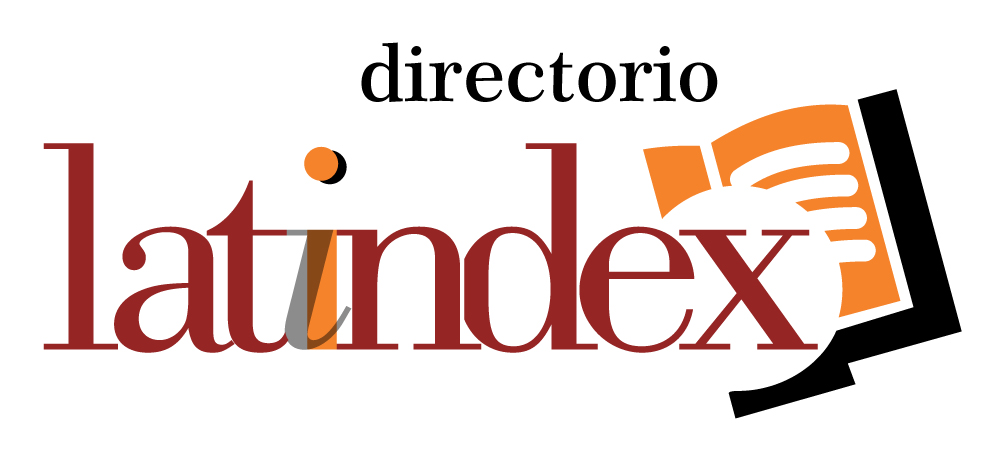Vol. 5 No. 1 (2014): Dossiê Rousseau

Maintaining one of its main purposes - to welcome and encourage the involvement of students with writing and participation in events related to undergraduate and graduate courses in Philosophy at UFG [Federal University of Goiás] - Inquietude reaches its ninth publication (v. 5, n. 1). In this edition we present the Dossier Rousseau with eight selected articles from the "VI International Colloquium Rousseau: Party and Representation" held in the city of Pirenópolis/GO in June 2013. We also have a Special Section with three texts produced over a course taught in graduate school (2013/2) by professor Adriana Delbó. Finally, we have an unpublished translation in Portuguese, prepared by Pedro Labaig (collaborator of Inquietude) of the last interview given by Michel Foucault, 27 days before his death, recently published by the French newspaper Libération; and also a review (by Cícero Josinaldo, postdoctoral philosophy professor at the Faculty of Philosophy of UFG and National Post-Doctoral Program/CAPES grant holder) on the book Hannah Arendt e a modernidade: política, economia e a disputa por uma fronteira (Forense Universitária, 2014) of the dear professor and current director of our Faculty, Adriano Correia.
Below, we have two texts prepared as a presentation to the Dossier Rousseau and the Special Section. The first, written by the organizers of the VI International Rousseau Colloquium, and the second by Prof. Adriana Delbó, for the texts elaborated in her discipline.
The Editing.
**********************************************************************************************
DOSSIER ROUSSEAU
The Jean-Jacques Rousseau Interdisciplinary Research Group [National Council for Scientific and Technological Development (CNPq)], together with the Rousseau and the Enlightenment Working Group [National Association of Post-Graduation in Philosophy (ANPOF)], held the VI International Rousseau Colloquium "Party and Representation", which, bringing together more than 120 researchers - students and teachers, Brazilian and foreign -, reflected the academic work committed to research and training of researchers that has been carried out for more than 15 years. Organized by the Faculty of Philosophy of the Federal University of Goiás (UFG), in June 2013, in the city of Pirenópolis - Goiás, the Colloquium also marked the closing of the tributes to the 300 years of birth of Jean-Jacques Rousseau.
In face of the general theme of the Colloquium "Party and Representation", aiming to welcome the multiplicity of Rousseauist thought and provide an in-depth discussion of the research being carried out within the scope of the post-graduation courses, the papers were presented in the framework of the discussion of the research lines of the Interdisciplinary Research Group Jean-Jacques Rousseau: 1) moral, politics and society; 2) aesthetics, literature and subjectivity; 3) culture and formation. The articles that we now bring to public, in the Dossier Rousseau of Inquietude, reflect these themes and offer the reader a small show of the communications presented by graduate students during the VI Colloquium.
We propose to the reader of the Dossier Rousseau to start reading the article by Anderson dos Santos about the theme of sovereignty, a subject as valuable as controversial in political philosophy. Starting from the theme of war in Hugo Grotius' On the law of war and peace, Anderson presents the concept of sovereignty to this author and confronts it with the conception of Jean-Jacques Rousseau in The social contract, which argues that sovereignty belongs to the people and that it should be exercised in accordance with the general will. The sovereignty of the people that is manifested through the general will is the central axis of Rousseauist political thought, although the formation of the general will is object of polemics among scholars. In this sense, the article by Lucas Ribeiro, which problematizes the task of the Legislator, contributes to this discussion. Seeking to clarify the conceptual distinction between persuading and convincing, the article proposes to provide some inputs for understanding the nature of the language of the Legislator, as well as explaining the effects aimed by it.
In the following, Nairis de Lima, having as reference the passage from the state of nature to the civil state described in the Discourse on the origin and foundations of inequality among men, presents a kind of genealogy of property contrasted with Rousseau, for whom property implies the emergence of inequality among men and the main ills of social coexistence, Locke argues that property is an extension of the individual. Rousseau’s critical position to private property made him recognized as one of the first critics of bourgeois society, which appears to him as the culmination of a process of devirtualization and alienation of the human race. Following this line of argument, André Ferreira brings Rousseau's thought to that of Marx demonstrating the critique of private property plays a similar role in the argumentation of both authors, since both recognize in the process of development of private property the realization of the alienation of men from their own essential, natural forces. Based on the assumption that inequality is an extremely serious problem and responsible for degrading political regimes, Vital Alves analyzes the effects of inequality within the republican State, in order to discern its likely consequences and discuss whether Rousseau suggests measures or arrangements to delay the coming-to-be of inequality.
The Dossier also presents a discussion about the themes of morality, formation and subjectivity. Gabriel Antunes is dedicated to the analysis of the controversial concept of human perfectibility in Rousseau’s thought, discussing the relationship between the irreversible rupture with the original happiness of man, in his process towards the civil state, and the assumption of moral life as an exercise of virtues. Arguing that it takes a lot of art to reconcile nature and society in order to prevent the social man degenerate completely, Homero Souza Filho thematizes education and philosophy as fundamental devices for the formation of man, from the analysis of Emile. Finally, the article of Natalia Carminatti studies the theme of memory and the reconstitution of memories in Les rêveries du promeneur solitaire. Based on psychoanalytic studies, she discusses the importance of revealing forgotten memories (masked by social repressions) for the understanding of one’s own being.
The diversity of topics treated by the articles and the interrelations that arise to the reader, as we move from one text to another, shows at the same time the richness and difficulty of knowing and interpreting Jean-Jacques Rousseau's thought. In the expectation of contributing to the discussions, we offer to Inquietude readers the Dossier prepared from the VI International Colloquium Rousseau.
Organization:
Prof. Dr. Helena Esser dos Reis
Prof. Dr. Marisa Alves Vento
Prof. Dr. Renato Moscateli
**********************************************************************************************
SPECIAL SECTION
Links and oppositions between culture, politics and formation in Nietzsche
In the Special Section of this issue of Inquietude we are proud to publish three articles whose elaboration took place along the discipline Links and oppositions between culture, politics and formation in Nietzsche taught in the Graduate Program in Philosophy at the Federal University of Goiás, in the 2nd semester of 2013. This honors us not only for being able to share with the readers the quality of texts that seek to systematize the disturbing thoughts occurred during the course of the discipline, but also because writing, a lasting, demanding, indispensable activity, unusual, and as a privileged moment for the movements of thought, cannot be a sudden and isolated event. Due to the requirements of the creative process inherent in writing, when they engage with it, students leave the room of class listeners - an important place, but somewhat insufficient for the laborious movement of thinking. Entering a level at least broader and more rigorous, the students can countless times read, reread, ask and ask themselves, continue with questions, seek answers, remake them, deal with dissatisfaction, organize ideas, reorganize them, systematize what they were able to think circumstantially.
Writing is the studying; it is not accountability. The achievement of grades/concepts is merely the result of an authorial involvement of students with the subjects studied. More than bureaucratic fulfillment of a requirement placed by the curricular grades, attending a discipline can be the moment of student formation: time and space to read, listen, reread, have doubts, be able to expose them, be able to write understandings, have readers, receive criticism, corrections and contributions. Finally, rewrite and momentarily finalize a study. At every moment the confrontation with the disorder of thoughts moving towards the making of what the Educational Institutions require and therefore need to offer: the condition for written thought, the text.
In the article Nietzsche, culture and self-formation: From the art of style to the art of becoming who you are, Carmelita Brito de Freitas Felício shares with the readers what she managed to systematize from her studies during the course of the discipline: how Nietzsche’s critique of culture mobilizes understandings about the idea of self-formation. If the culture goes through the cultivation of a "type man", how can we "become what we are"? And what are we!? The article offers readers the understanding reached around the idea of style as self-creation, links between culture and creation, barriers between education and self-formation.
In the article Waking up from the dream or repeating the nightmare? The superior culture in Nietzsche under Agamben's criticism, Pedro Lucas Dulci provides to readers the analysis reached regarding the limitation of western culture with a view to the depotentialization of life. Agamben's reading on Nietzsche is in question, however the concerns common to both thinkers only have to offer understanding regarding the indissociability between life, creation and culture.
In the article Nietzsche: The critique of metaphysics and the body as a starting point, Edson Prado brings us an understanding of the Nietzschean notion of body, articulating it with Nietzsche’s criticism of metaphysics, having as background his concern for culture.
Texts in disciplines. Discipline for texts. Discipline for doubts, exhibitions, understandings and misunderstandings, systematizations. Readings inebriated of involvement with issues provoked in discipline. Discipline out of the discipline. This is the challenge of the arduous, but exciting work carried out among students and teachers.
Adriana Delbó








